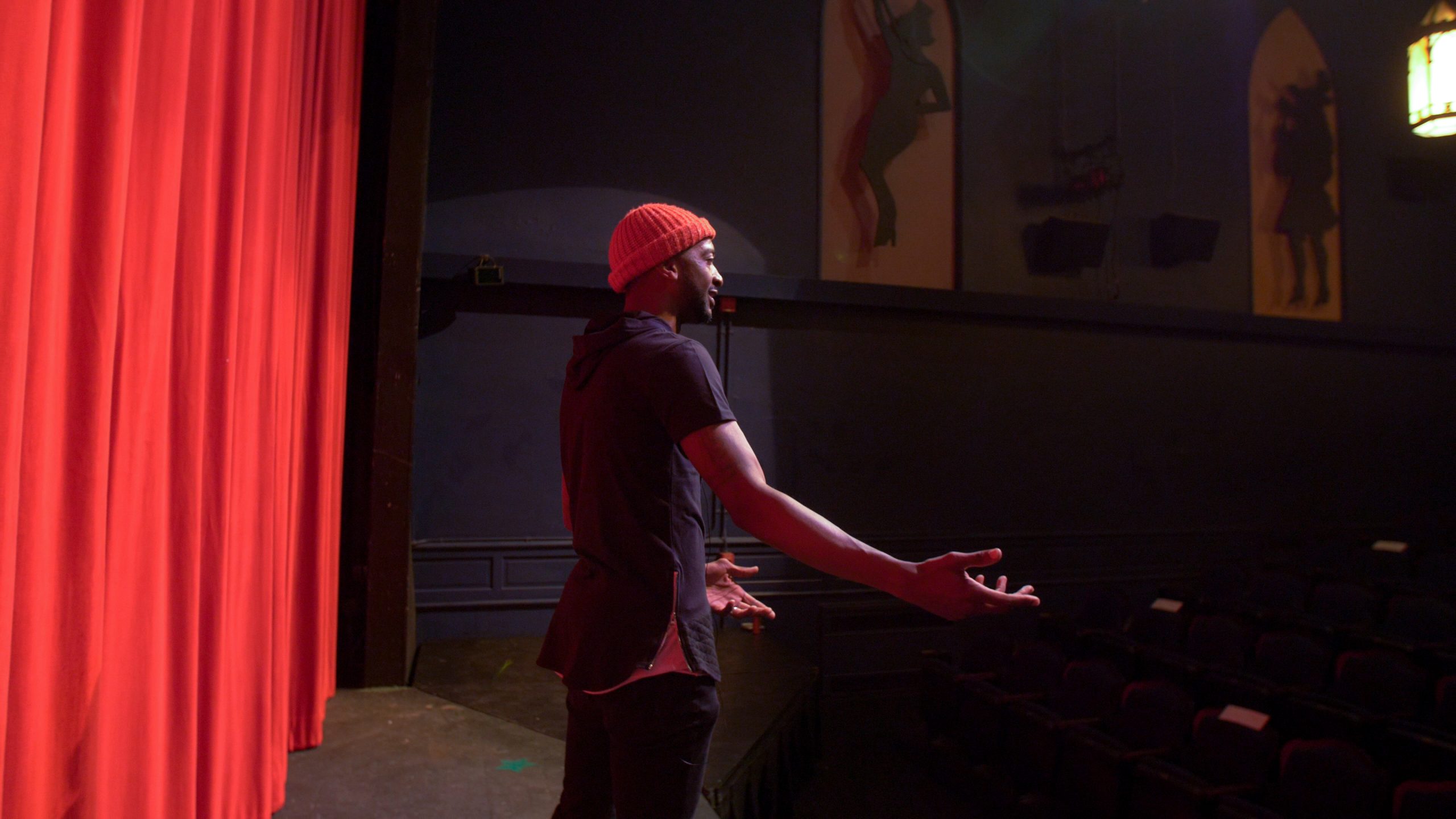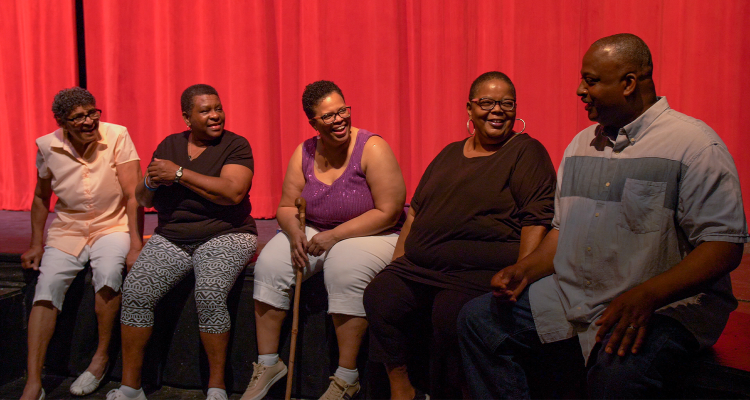Resilience. Endurance. Commitment.
That’s what we’re seeing in the Ohio Valley — as is proven by the fact that a Juneteenth celebration is taking place. Even if it is being held virtually this year.
The YWCA Wheeling and Wheeling Heritage are presenting the celebration to be premiered on both organizations’ Facebook pages at 6 p.m. Friday, June 19. The program features speakers and performers. It was filmed ahead of time to adhere to social distancing measures.
Juneteenth commemorates the ending of slavery in the United States. The event dates back to June 19, 1865, when Union soldiers arrived at Galveston, Texas, with news that the war had ended and that the enslaved were free. This was more than two years after President Lincoln’s Emancipation Proclamation, which had become official Jan. 1, 1863.
“This year’s celebration is important because it shows our resilience and endurance to still have the event despite the pandemic,” said Ron Scott, who is the cultural diversity and community outreach program director at the YWCA Wheeling. “And it is a testament to the commitment to our area and its desire to keep celebrations like this alive for segments of the community who may feel disenfranchised and marginalized.”
“Juneteenth is an important cultural event because it not only helps us to remember the difficult history of enslavement in the United States, but also provides and opportunity to celebrate the rich contributions African Americans have made to our community,” said Betsy Sweeny, director of heritage programming at Wheeling Heritage.
“We wanted this event to be a celebration. That’s why it was so important to incorporate musical performers into the production this year,” said Scott. “It would be really easy to stay feeling down right now, but this is an opportunity to celebrate the contributions of the black community in Wheeling.”
Entertainment will be provided by The Voice of Praise Choir from Macedonia Baptist Church, and rappers Isaiah Alford and Jay Strothers (who goes by the name J the Anomaly). Also during the celebration, Owens Brown, president of the West Virginia NAACP, and Wheeling Mayor Glenn Elliott will share thoughts about Juneteenth and the Ohio Valley. Sen. Ryan Weld will read a proclamation.

Perhaps more than ever, Juneteenth needs to be celebrated this year because of the events in the past few weeks, notably the murder of George Floyd on May 25 and the Black Lives Matter movement.
“Given the recent events, it’s especially important to take this opportunity to come together,” said Sweeny. “One of the reasons we chose to focus on music this year was because it’s so unifying. Race and the history of systemic oppression is heavy, hard stuff, but music provides an opportunity to come together.
Wheeling Heritage, Oglebay Institute, the YWCA and the City of Wheeling made sure the celebration “happened despite all other pressing events and occurrences. That says a lot,” Scott added.
“When we took part in organizing Juneteenth as part of the Wheeling 250 Celebration last year, we said this will be an annual celebration, not just a one-off thing. When COVID-19 hit, we were unable to coordinate our committee as we’d hoped,” Sweeny said. “We thought, ‘What can we do to make good on our promise, and still stay safe?’ This is event looks a little different this year, but we hope everyone enjoys it.”
Those interested in viewing the program can tune in to the Wheeling Heritage or YWCA Facebook page at 6 p.m. on June 19. Friends and family are encouraged to create their own “watch parties” to view the program together.
MORE ABOUT JUNETEENTH
(The information below was written by Christina Fisanick and posted on Weelunk on June 18, 2019. You can read the story in its entirety here.)
Many Americans probably believe that once President Lincoln signed the Emancipation Proclamation in 1863 that all slaves were set free and lived happily ever after.
In reality, the road to freedom for most enslaved persons was long and difficult. And for slaves in Texas, the journey was even more challenging as they were not freed from bondage until June 19, 1865 — two and a half years after the Executive Order was signed. It is no wonder, then, that June 19, or Juneteenth, became and remains a day of celebration among African Americans.
DELAYED EMANCIPATION
Historians have put forth many reasons why Texans continued slavery well past it being lawful. Some argue that the messenger sent with the news to Texas was murdered on his way. Others suggest that slaveholders deliberately withheld the proclamation so that they could keep their plantations going at full speed. And still, others state that federal troops chose to stay out of Texas for just a few years longer so plantation owners could profit from one more cotton harvest.
No solid evidence proves any of these theories concretely, but what is known is that not long after Gen. Lee’s surrender in April 1865, Union forces were strong enough to ride into Texas and enforce Lincoln’s order. Led by Gen. Gordon Granger, Union troops arrived in Galveston, Texas on June 19, 1865. Gen. Granger’s first action was to read to gathered citizens General Order Number 3, which opens with:
“The people of Texas are informed that in accordance with a Proclamation from the Executive of the United States, all slaves are free. This involves an absolute equality of rights and rights of property between former masters and slaves, and the connection heretofore existing between them becomes that between employer and free laborer.”
Obviously, the reactions to this news was a mixture of shock, disbelief and jubilation. Some slaves returned to their plantations to work out agreements with their former owners, while others packed up and left, many not knowing where they were going, but happy to go nonetheless. Other now former slaves traveled in search of relatives and friends who had been sold or traded over the years.
EARLY JUNETEENTH CELEBRATIONS
Beginning in 1866, African Americans commemorated Juneteenth with picnics, parades and speeches. As time went on, Juneteenth events spread across the country with larger gatherings hosting up to 5,000 people. As the celebrations grew, so did Juneteenth activities, which included baseball games, formal dances, horse races, political speeches, street fairs and carnivals.
In the 1870s, with the help of donations from church-based fundraisers, a group of former slaves raised $800 to buy the first-ever permanent Juneteenth venue. The 10 acres of land became Emancipation Park, which is located in modern-day Houston, Texas.
By 1918, the City of Houston had taken on ownership of the park. Because of segregation laws, Emancipation Park was the only municipal park that African Americans were permitted to use. The park, and others like it across the country, continued to serve as a gathering space for former slaves to celebrate their freedom and to reunite with their families.
Like so many traditions, the historic roots of Juneteenth were lost over time, but in the 1970s, a push to reclaim African American traditions brought Juneteenth back into focus. This new attention resulted in the State of Texas declaring Juneteenth a state holiday, which was celebrated for the first time in 1980. In 1997, a joint resolution passed through the U.S. Senate “commemorating ‘Juneteenth Independence Day,’ June 19, 1865, the day on which slavery finally came to an end in the United States.”
Today, 45 states and the District of Columbia have added Juneteenth to their list of state holidays or observances. Hawaii, Montana, New Hampshire, South Dakota and North Dakota do not observe the state holiday. (Update: Currently, 47 states recognize Juneteenth. The three states that do not are Hawaii, North Dakota and South Dakota.)
Contemporary Juneteenth celebrations include public readings of the Emancipation Proclamation and works of well-known African American writers. Many celebrations incorporate family reunions, historical re-enactments and street fairs.
JUNETEENTH IN WHEELING HISTORY
Although few records exist of Juneteenth celebrations in West Virginia before the latter part of the 20th century, a number of Juneteenth events have been held throughout the state since excitement in the mid-1990s prompted a rebirth. Some of the communities that celebrate annually include Huntington, Charleston, Morgantown and Elkins. Activities range from historical re-enactments to lectures on African American history to tennis tournaments and relay races.
Based on materials housed in the Ohio County Public Library’s Archives and Special Collections, Emancipation Day was celebrated more often in Wheeling and the tri-state area than Juneteenth. While both commemorate freedom from slavery, Emancipation Day, which is sometimes used synonymously with Juneteenth, marked the day in September when President Lincoln put forth the Emancipation Proclamation.
The Intelligencer reported on many Emancipation Day celebrations in the Wheeling area starting in 1867. That year’s events were held in Moundsville at the “Old Camp Grounds” and included guests from Wheeling as well. A procession began at the train station and wound its way to the campgrounds where many rousing speeches were given to a large mixed-race audience.
The tradition continued to grow, and by 1891, had expanded to include participants from Pennsylvania and Ohio as well. According to the reporter, “There were from fifteen hundred to two thousand people on the fairgrounds and of these perhaps not over two hundred were white. There were a great many distinguished looking colored men in the throng. Mt. Pleasant, St. Clairsville, Steubenville and Pittsburgh being well represented.”
Emancipation Day celebrations were reported in The Intelligencer in 1896 and again in 1909. Both events were held at the fairgrounds on Wheeling Island, too, and included people from the tri-state area, speeches, dancing, games, races and large picnic-style menus. Of the 1896 celebration, the reporter proclaimed: “Despite the weather, it was by long odds the largest and best celebration ever held in Wheeling, and the crowd on the fairgrounds in the afternoon was large.”


